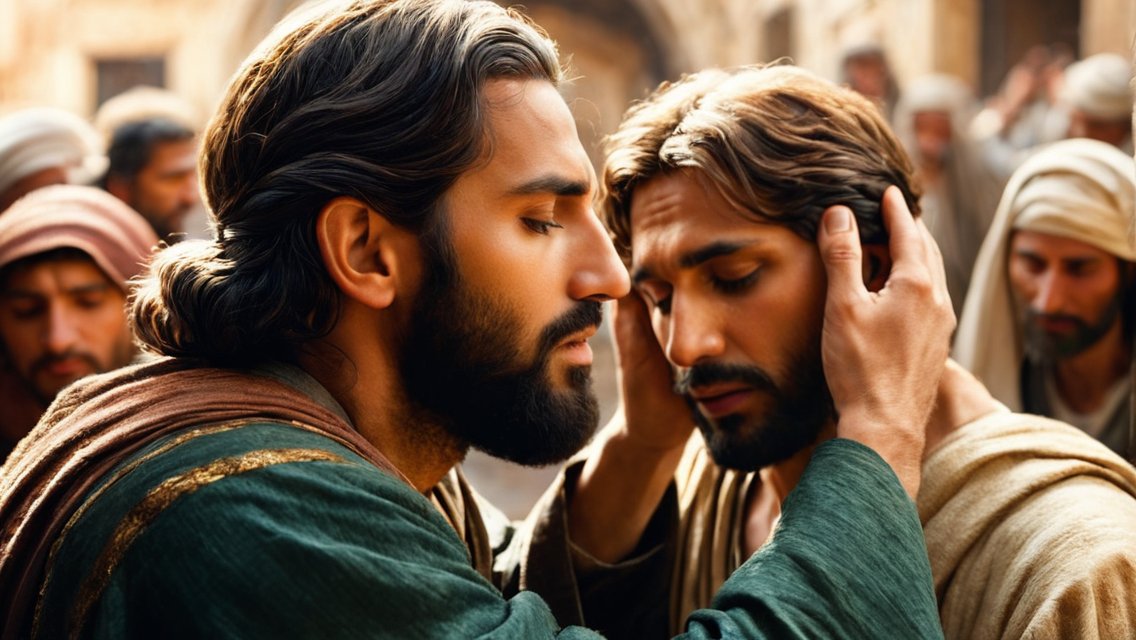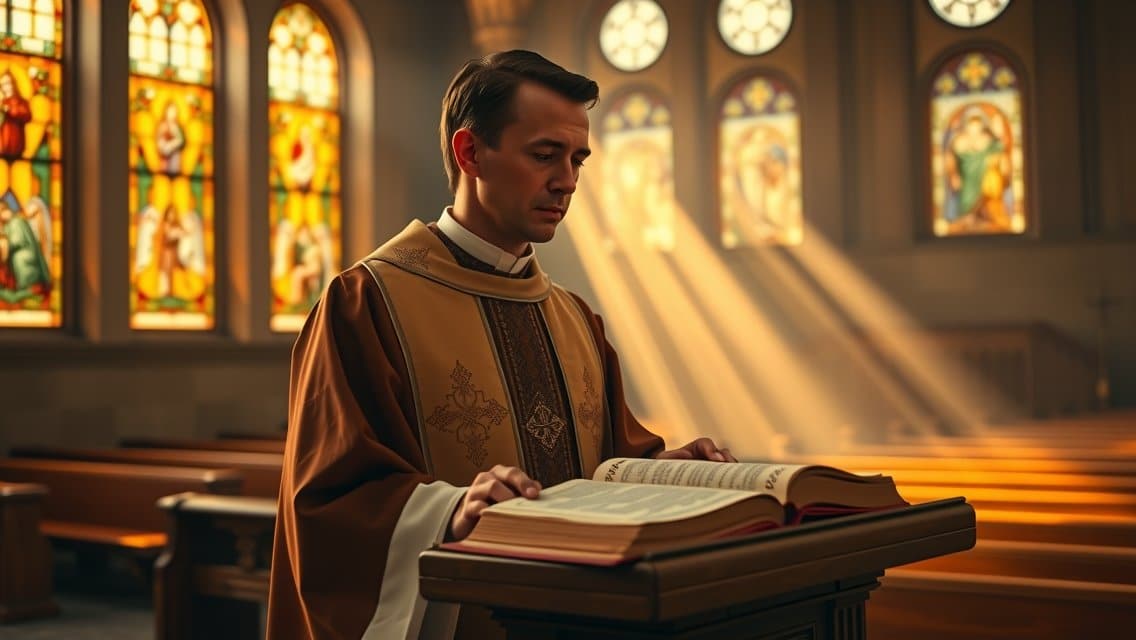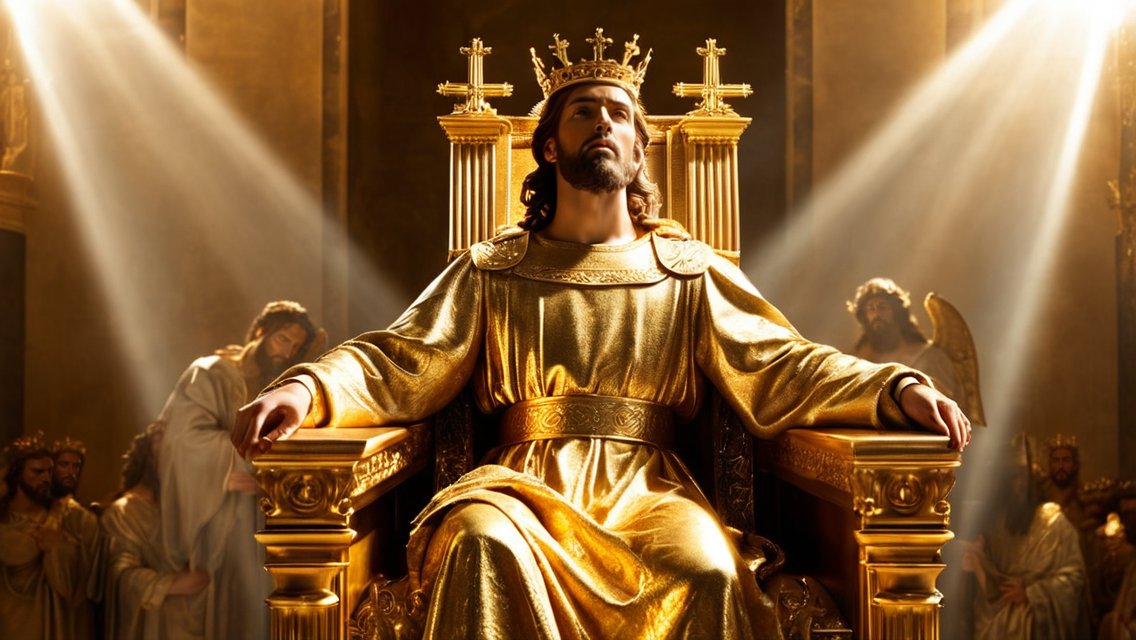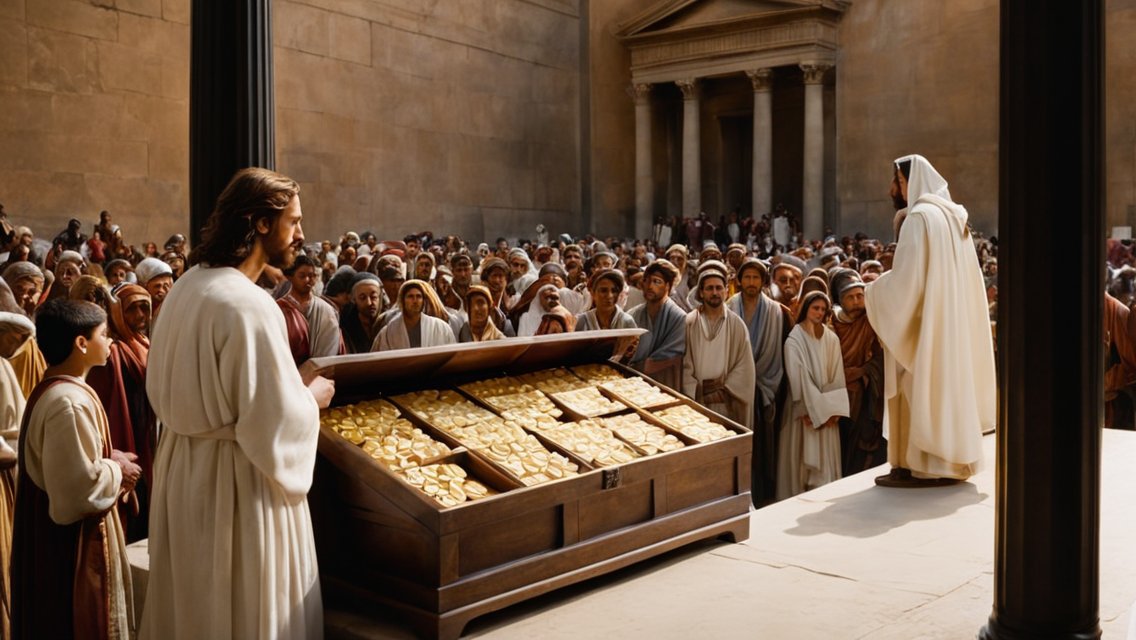30th Sunday Homily in Ordinary Time Year B
Here you will find homily for 30th Sunday in ordinary time year b with moral story and bible quotation. You can integrate moral story and bible verses with your homily to make your sunday homily rich and inspirational. On 30th Sunday in ordinary time year b, as scripture inspires us with the Word of God “Master, let me see again!” (Mk), we are also called to experience the same inspiration which the blind man has within himself to see God not only through our ordinary eyes but also through our inner eyes.
Readings: Jer 31:7-9, Heb 5:1-6, Mk l0:46-52
Moral Story: The Heart of a Shepherd
Bible Verse: 15 Beautiful Good Shepherd Bible verses
Mass Readings for the 30th Sunday Homily in Ordinary Time Year B
1st Reading – Jeremiah 31:7-9
7 Thus says the LORD: Shout with joy for Jacob, exult at the head of the nations; proclaim your praise and say: The LORD has delivered his people, the remnant of Israel.
8 Behold, I will bring them back from the land of the north; I will gather them from the ends of the world, with the blind and the lame in their midst,
the mothers and those with child; they shall return as an immense throng.
9 They departed in tears, but I will console them and guide them; I will lead them to brooks of water, on a level road, so that none shall stumble. For I am a father to Israel, Ephraim is my first-born.
Responsorial Psalm – Psalms 126:1-2, 2-3, 4-5, 6
R. (3) The Lord has done great things for us; we are filled with joy.
1 When the LORD brought back the captives of Zion,
we were like men dreaming.
2AB Then our mouth was filled with laughter,
and our tongue with rejoicing.
R. The Lord has done great things for us; we are filled with joy.
2BC Then they said among the nations,
“The LORD has done great things for them.”
3 The LORD has done great things for us;
we are glad indeed.
R. The Lord has done great things for us; we are filled with joy.
4 Restore our fortunes, O LORD,
like the torrents in the southern desert.
5 Those that sow in tears
shall reap rejoicing.
R. The Lord has done great things for us; we are filled with joy.
6 Although they go forth weeping,
carrying the seed to be sown,
They shall come back rejoicing,
carrying their sheaves.
R. The Lord has done great things for us; we are filled with joy.
2nd Reading – Hebrews 5:1-6
Brothers and sisters:
1 Every high priest is taken from among men and made their representative before God, to offer gifts and sacrifices for sins.
2 He is able to deal patiently with the ignorant and erring, for he himself is beset by weakness
3 and so, for this reason, must make sin offerings for himself as well as for the people.
4 No one takes this honor upon himself but only when called by God, just as Aaron was.
5 In the same way, it was not Christ who glorified himself in becoming high priest, but rather the one who said to him: You are my son: this day I have begotten you;
6 just as he says in another place: You are a priest forever according to the order of Melchizedek.
Alleluia – CF. 2 Timothy 1:10
R. Alleluia, alleluia.
10 Our Savior Jesus Christ destroyed death
and brought life to light through the Gospel.
R. Alleluia, alleluia.
Gospel – Mark 10:46-52
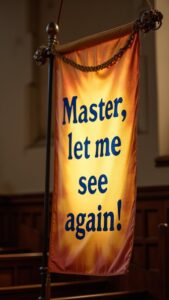
46 As Jesus was leaving Jericho with his disciples and a sizable crowd, Bartimaeus, a blind man, the son of Timaeus, sat by the roadside begging.
47 On hearing that it was Jesus of Nazareth, he began to cry out and say, “Jesus, son of David, have pity on me.”
48 And many rebuked him, telling him to be silent. But he kept calling out all the more, “Son of David, have pity on me.”
49 Jesus stopped and said, “Call him.” So they called the blind man, saying to him, “Take courage; get up, Jesus is calling you.”
50 He threw aside his cloak, sprang up, and came to Jesus.
51 Jesus said to him in reply, “What do you want me to do for you?” The blind man replied to him, “Master, I want to see.”
52 Jesus told him, “Go your way; your faith has saved you.” Immediately he received his sight and followed him on the way.
Moral Story for the 30th Sunday Homily in Ordinary Time Year b 
Once in a small village, there was a kind-hearted shepherd named Elias. He cared deeply for his flock, often risking his own safety to protect them from wild animals. One cold winter night, one of his sheep wandered away, and Elias immediately set out to find it, even though it was dangerous to do so. Read. . .
A Joke on Talking Dog and the Priest

A man took his dog to church one Sunday. As the priest was giving his homily, the dog barked out, “Amen!” The priest, surprised, asked, “Does this dog know the Bible?” More. . .
Homily For the 30th Sunday Homily in Ordinary Time Year B
Add Moral Story to Your Homily
Add Some Religious Jokes to Your Homily
Add Some Bible Verses to Your Homily
| Bible Verses on Love of God | Bible Verses on Good Shepherd |
| Bible Verses on Servant | Bible Verses on Eternal Life |
| Bible Verses on Marriage | Bible Verses on Inner Sight |
| More Bible Verses | More Bible Verses |
Homily For 30th Sunday in Ordinary Time Year B
Bartimaeus Blindness & Banarasi Bhakti
“Master, let me see again!” (Mk)
One misty night, when the city lights went off, an elderly couple lost their way and couldn’t get back home amidst the deepening darkness. Seeking help, they saw a man with a stick walking towards them.
“Sir,” they cried, ‘Can you help us find our way home?’’ The man said, “Yes,” and asked them where they lived. He then walked with them all the way to their house. Grateful, the couple asked, “How come you can see so clearly despite this mist and darkness?” The man was silent awhile.
He then replied, “I’m blind: so, I‘m used to reaching places even in the darkness!” Blind Bartimaeus in today’s gospel seems similar to I this blind man.
Though physically blind, Bartimaeus is truly a bhakta (devotee) of Jesus with the ‘eyes of faith’ because of several reasons which emerge from the gospel passage, First, Bartimaeus seems to have heard about Jesus’ compassion and power to heal; hence, he begins to shout.
Second, his prayer for pity is poignant: “Son of David, Jesus, have pity on me!” Third, although the people around Jesus scold him and tell him to keep quiet, he shouts louder, “Son of David has pity on me!”
Fourth, his eagerness for healing is apparent as he “throws off his cloak” and “jumps up” to meet Jesus. Fifth, his entreaty for healing is endearing, “Rabbuni, Master, let me see again!”
Having said this about Bartimaeus, we see that Jesus admires his faith and says, “Go; your faith has saved you.” The climax of the story, however, comes in the last line, namely, Bartimaeus “followed Jesus along the road.”
Unlike the rich young man mad after money, and unlike the disciples preoccupied with positions of power, blind Bartimaeus shows us what bhakti is all about. Even before Jesus restores his eyesight, he seems to see with the eyes of faith.
The prayer of Bartimaeus is a Christian classic that can be used by anyone, anytime. In the book ‘The Way of the Pilgrim’, the pilgrim keeps on repeating, mantra-like, the invocation, “Jesus, son of David, have mercy on me!” This is one of the prayers l often repeat, sometimes distractedly, during my day. And it helps me to remain deeply aware of God’s presence in my life.
I write this reflection during a two-week stay at Hinduism’s holiest city, Banaras (Varanasi). Two scenes of bhakti (devotion, belief) have deeply touched me.
First, Saturday evening, amidst the colours of flowers, the scent of agarbattis, the ringing of temple bells and the gentle gurgle of the Ganga, I see the deep faith of aged bhaktas braving September showers to descend into the holy waters.
Eyes closed, wrinkled hands cupping water to bathe and bless themselves, they murmur mantras and Lord Shiva’s hundred names in an act of supreme surrender.
Second, Sunday afternoon, hardly a mile from the Holy River, in Matridham Ashram (literally, Mother’s Abode Ashram), thousands of Khrist Bhaktas congregate for a Satsang (prayer service) to adore Lord Jesus.
These are poor, simple villagers, uneducated and yet fully aware of the power of the ‘word of God’. Every week, ordinary men and women gather by the hundreds and pray in their own wonderful way with cries of ‘Hallelujah” They fill bottles with holy water to carry to their sick back home.
Most of these are not baptized – and never will be – yet, they consider Jesus their Muktidata (Saviour).
Places like Banaras and bhaktas like Bartimaeus continue to challenge me: How much of faith do I have? Am I not sometimes more blind that Bartimaeus ever was?
In the first reading, written during the Babylonian Exile, Yahweh promises his people through prophet Jeremiah: “l will bring them back the blind and the lame,” Eve; today, Jesus’ welcoming words and healing touch work wonders.
For us, whose faith is weak, we say, “seeing is believing.” For Bartimaeus, it was, perhaps, “believing is seeing.”
